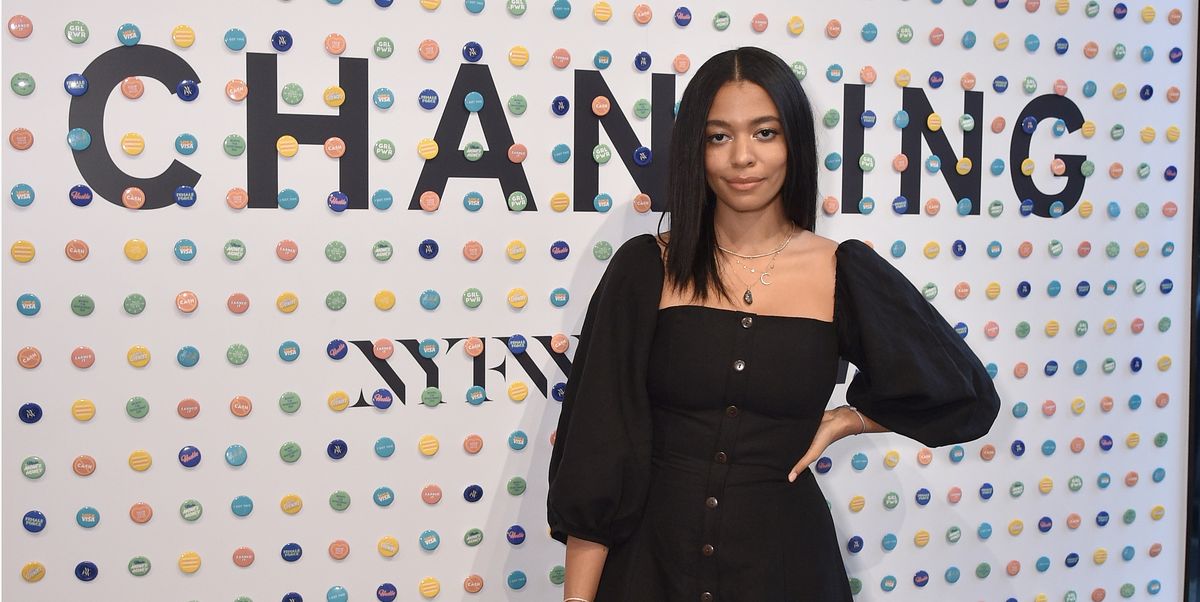Amplifying Black voices involves more than just collectively heralding it in the streets. Indeed, it is a great start, but to really stimulate continuing change and repeal systemic racism in myriad industries, those in positions of power and influence need to put their money where their mouths are. This is what Aurora James was requesting from the retail industry with her Instagram post on May 29. The founder and designer of the footwear brand Brother Vellies called on major store chains to take the 15 Percent Pledge, which is to devote a portion of their buy to Black-owned businesses.
“So many of your businesses are built on Black spending power,” James wrote, after citing Whole Foods, Target, MedMen, Walmart, Saks Fifth Avenue, Sephora, Net-a-Porter, Barnes & Noble, and Home Depot. “So many of your stores are set up in Black communities. So many of your sponsored posts are seen on Black feeds. This is the least you can do for us. We represent 15% of the population and we need to represent 15% of your shelf space.”
This content is imported from Instagram. You may be able to find the same content in another format, or you may be able to find more information, at their web site.
These companies, being reputed movers and shakers in the fields of fashion, farming, beauty, cannabis, and more, have the visibility and resources to influence how the masses shop for products. This is especially prevalent for burgeoning brands, who are often at the mercy of their seasonal buys to stay afloat. According to James, taking part in this pledge will not only provide much-needed finances to a brand in the short-term, but will cause a ripple effect that will lead to more opportunities. She used Whole Foods as an example.
“Whole Foods if you were to sign on to this pledge, it could immediately drive much needed support to Black farmers,” she wrote. “Banks will be forced to take them seriously because they will be walking in with major purchase orders from Whole Foods. Investors for the very first time will start actively seeking them out. Small businesses can turn into bigger ones. Real investment will start happening in Black businesses which will subsequently be paid forward into our Black communities.”
Of course, all this is easier said than done—and James understands that. As someone who runs an independent fashion brand, she is aware that stores need to turn a profit and that buyers rely on margins and projections when placing their orders. Still, there is no excuse to not actively partner with Black-owned entrepreneurs who, too, are aware of best business practices.
“I have sold millions of dollars of product over the years at a business I started with $3500 at a flea market,” she explained. “So I am telling you we can get this figured out. This is an opportunity. It is your opportunity to get in the right side of this.”
The murder of George Floyd prompted the world to face the fact that institutional racism is a reality. And by taking the 15 Percent Pledge, which became a registered charity days after James’s message, companies are acknowledging that there has been a serious lack of diversity across all industries and that this is no longer acceptable. For retailers who honestly want to convey solidarity with the Black Lives Matter movement, statements simply don’t cut it. Make the promise to do better and actually follow through with it.
“I will get texts that this is crazy,” James concluded. “I will get phone calls that this is too direct, too big of an ask, too this, too that. But I don’t think it’s too anything, in fact I think it’s just a start. You want to be an ally? This is what I’m asking for.”
This content is created and maintained by a third party, and imported onto this page to help users provide their email addresses. You may be able to find more information about this and similar content at piano.io
